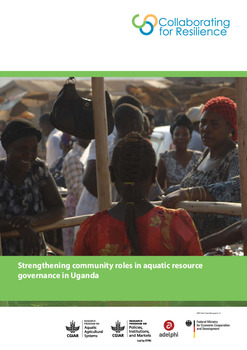Strengthening community roles in aquatic resource governance in Uganda

Citation
Burnley, C. et al. (2014). Strengthening community roles in aquatic resource governance in Uganda. Program Report. Collaborating for Resilience
Lake Victoria fisheries face severe environmental stresses. Stocks are declining in a context of increasing population and growing demand for the lake's resources. Rising competition between users is putting conservation goals and rural livelihoods at risk. While Uganda's co-management policy framework is well-developed, key resources for implementation are lacking, enforcement is poor, and the relations between stakeholders are unequal. Poor rural resource users face significant challenges to effectively participate in fisheries decision-making. This case study demonstrates the progress that can be made using a collaborative approach to catalyze community-led actions linking public health, sanitation and environmental conservation in difficult circumstances, even over a relatively short time period. Multistakeholder dialogue can bring to light the sources of conflict, pinpoint governance challenges, and identify opportunities for institutional collaboration to address community needs. At the same time, the process can help build trust, confidence in collective action and public accountability.
Permalink
Date Available
Type
Publisher
Countries
Copyright
CC BY 4.0
Research Themes
Topics